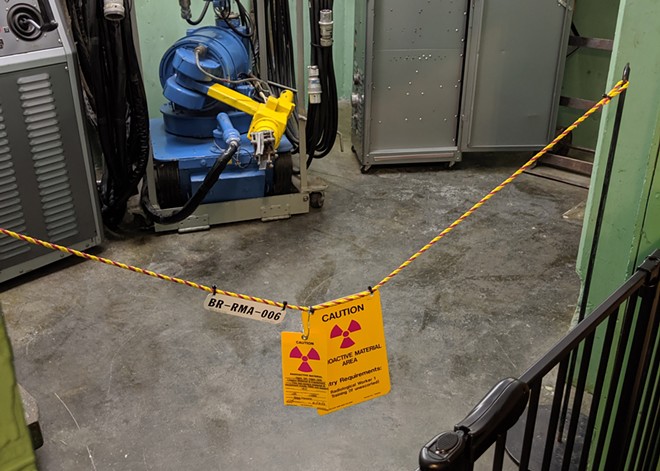The Spokane City Council voted 6-1 on Monday to send a letter drafted by Council member Zack Zappone to Gov. Jay Inslee, U.S. Rep. Cathy McMorris Rodgers, and leaders at the U.S. Environmental Protection Agency and the federal Department of Energy addressing concerns about transporting radioactive waste through Spokane. Liquid hazardous waste is expected to be transported from the Hanford nuclear site through Spokane to treatment facilities in Texas and Utah in liquid form. The letter states the council "encourages you to seriously consider the potential ramifications of transporting liquid nuclear waste via Interstate 90 through highly populated and traveled regions of our state and city." On Sept. 18, Mayor Lisa Brown sent a similar letter addressing fears about the potential for more liquid waste to move through the region without an environmental impact study. The initial planned route through Oregon was changed to a route through Washington, after Oregon officials voiced concerns. "I am extremely disappointed to learn that, following the expression of serious concerns by our friends from the State of Oregon and the CTUIR, your agencies shifted your planned route to go through Spokane," Brown's letter stated. (VICTOR CORRAL MARTINEZ)
CLOSED FOR GOOD
The death penalty has been effectively barred in Washington since 2014 when Gov. Jay Inslee announced a moratorium on the practice. But physical remnants of capital punishment remained. That is, until last week, when the Walla Walla State Penitentiary execution chamber was officially closed. There, 78 people were executed by hanging or lethal injection between 1904 and 2010. The closure marked the end of a decade-long legal process to abolish the death penalty in the state. In 2017, three years after Inslee's moratorium, the Washington Supreme Court decided that the death penalty violated the state constitution because it had been disproportionately applied to Black defendants. The Legislature finally voted to outlaw the practice in 2023. "When people commit a heinous crime, sentencing shouldn't be a fatal lottery based on zip code or race," Inslee said at the closing ceremony last week. "This closure brings us one step closer to equal justice, for all." (COLTON RASANEN)
OMBUDS UPDATE
Spokane's Office of Police Ombuds is an independent civilian oversight agency that reviews internal affairs cases, provides policy recommendations and processes civilian complaints. But during an annual presentation to the City Council on Monday, ombuds Bart Logue, who leads the office, said that Spokane's police watchdog agency is still struggling to achieve full independent authority more than a decade after it was created. Many challenges stem from terms in the Spokane Police Guild's current contract with the city, which Logue said "set back civilian oversight in Spokane." The contract limits the ombuds' ability to access records and interview officers when conducting independent investigations. It also removes the office from the process of selecting a deputy police ombuds and places a number of restrictions on how closing reports are written. The last round of contract negotiations were "extremely frustrating," Logue said. Council member Michael Cathcart noted that the ballot proposition to create the independent watchdog passed with 70% of the vote in 2013. "There's still a long way to go to full implementation of what I think most of the voters expected," Cathcart said. Thankfully, Logue said his office is making progress on community engagement and has a "pretty good working relationship with SPD." Complaints against officers are on a downward trend. The ombuds office received 77 complaints in 2023 — the lowest number since 2019. (NATE SANFORD) ♦

